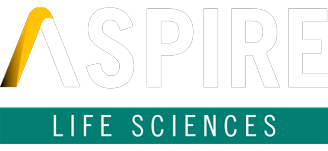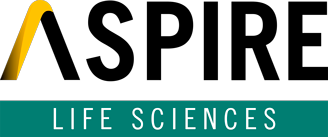Guide to startup incubator hubs in France: Life Sciences, Biotech and MedTech

At Aspire Life Sciences, we work with ambitious BioTech, TechBio and MedTech founders across Europe and the US. One of the earliest and most critical choices these founders face is where to incubate and scale their ideas. Choosing the right hub can mean access to labs, networks, mentors, and capital — and ultimately, a stronger path to success.
To help founders navigate the French incubator landscape, we’ve created this guide. Each entry highlights what’s good, considerations, key comparisons, and the type of founder best suited for each hub, similar to how car reviews break down models for buyers.
This way, you can quickly match incubators to your venture’s needs.
Agoranov
Genopole
Genother Biocluster
Haventure
Institut Pasteur
Lyonbiopôle
Medicen
Station F
Wilco
Agoranov
Paris, Île-de-France
“Supporting Tech & Science startups for 20 years.”
Current insight
Agoranov, created in 2000, is one of France’s most established public incubators and a cornerstone of the Paris deeptech ecosystem. It has incubated more than 570 startups across health, digital, and industrial tech, generating over 20,000 jobs and €5.8bn in private funding. Known for its role in launching unicorns like Doctolib, Alan, and Criteo, Agoranov has become a symbol of France’s ambition to compete at a global level in science-driven innovation. The incubator combines coaching, mentoring, office space, and strong links to research institutes, universities, and investors, making it a trusted first stop for many deeptech founders.
What’s good
- Proven track record with unicorns like Doctolib, Alan, and Criteo
- Strong links to universities, research centres, and investors
- Deep experience with deeptech startups across health, digital, and industry
Considerations
- Highly competitive to join, with limited spots available
- More structured/formal compared to private accelerators
- Heavy Paris focus, less direct access to international markets
Key comparisons
- Wilco offers more structured acceleration and scaling to €1m revenue
- Station F provides larger scale but less bespoke coaching
Best fits
- Academic spin-outs, deeptech founders, or highly technical startups
- Teams seeking validation, funding access, and deep scientific support
Verdict
Agoranov remains a flagship deeptech incubator. With a history of producing unicorns, it’s the place to be for ambitious founders, but competition is fierce and it suits only highly innovation-driven ventures.
“Agoranova is one of the oldest in France. The CEO is one of the MasterMind of the French startup ecosystem since its beginning. Gives an access to 50 k€ grant thanks to the city of Paris.” Serge Kinkingnehun.
Genopole
Évry, Île-de-France
“France’s flagship biocluster for lab-intensive startups”
Current insight
Genopole remains France’s most mature biocluster, supporting over 66 companies and dedicating ~39,400 m² to scientific research. Its technical facilities include both private and shared labs, with ongoing expansion projects. The Shaker program continues to nurture early-stage BioTech ventures in health and bioeconomy without taking equity. Recently, it also inaugurated a L’Oréal Green Sciences Incubator for sustainability / green chemistry ventures.
What’s good
- Highly developed lab infrastructure, with both shared and private access
- Longstanding BioTech reputation and deep network of service providers
- Strong early-stage support via non-dilutive programs like Shaker
Considerations
- Less oriented to digital-only or health-IT — may feel heavyweight for software-first BioTech
- Being a mature hub, competition is stiff and entry criteria are strict
Key comparisons
- GenoTher offers more focused depth in gene therapy currently
- Station F gives broader exposure but lacks lab depth
Best fits
- Wet-lab startups, synthetic biology, enzyme engineering, translational BioTech
- Spin-outs from academic labs wanting mature R&D support
Verdict
Genopole remains foundational for lab-intensive BioTech in France. Its combination of infrastructure, programs, and ecosystem maturity makes it a safe backbone choice — though for highly specialized therapy projects, pairing with GenoTher might offer additional leverage.
“France’s leading biocluster has wet labs, shared facilities and many life-science spin-offs. This is good for those who need lab benches + an established network of biotech service providers.” Ali Zeaiter.
GenoTher Biocluster
Évry, Île-de-France
“Europe’s first dedicated gene therapy cluster”
Current insight (2025)
GenoTher has been formally designated a national biocluster under France 2030, signaling the government’s commitment to make gene therapy a strategic sector. It unites institutions like Genethon, Inserm, Université d’Évry, and Yposkesi to build integrated platforms — from non-GMP vector development to clinical trial readiness. As of this year, new incubation cohorts, training programs, and stronger cross-cluster partnerships are being rolled out to mature the ecosystem.
What’s good
- Access to technological platforms and wet labs
- Dedicated gene therapy ecosystem and networking
- Focused depth in advanced therapies
Considerations
- Still early in its scaling — processes and services are solidifying
- High specialisation may leave adjacent BioTech use cases underserved
- Competition for slots is increasing
Key comparisons
- Compared with Genopole, GenoTher is narrower but more focused on advanced therapy
- Station F offers more exposure but lacks gene-therapy depth
Best fits
- Founders working on viral vectors, cell & gene therapy, delivery systems
- Projects needing advanced R&D platforms and translational support
Verdict
If your startup’s core is in gene therapy, GenoTher is shaping up to be a key French hub — just be prepared for the ecosystem to grow and tighten in the coming years.
“GenoTher is the first European biocluster dedicated to gene therapy in Europe. An incubator will be developed within this biocluster and will provide access to technological platforms as well as network.” Mélodie Dupré.
Haventure
Grenoble, Auvergne-Rhône-Alpes
“The first dedicated digital surgery & robotics startups factory.”
Current insight
Founded in 2018, Haventure has established itself as France’s first startup factory dedicated to digital surgery and robotics. Located in the Grenoble ecosystem — a hub for MedTech and advanced engineering — Haventure provides founders with a mix of technical expertise, clinical access, and investor networks. Its programs are designed to turn early concepts into viable companies, with a strong track record in surgical robotics and next-generation medical devices. By combining local engineering talent with European venture capital connections, Haventure has become a launchpad for deeptech ventures in healthcare.
What’s good
- Specialist focus on surgical robotics and digital surgery
- Strong integration with Grenoble’s MedTech and engineering community
- Early successes with seed funding rounds for portfolio startups
Considerations
- Very niche focus; not suitable for general BioTech or digital health startups
- Smaller scale compared to Paris-based hubs
- Limited international brand recognition so far
Key comparisons
- Genopole offers broader BioTech infrastructure but less robotics depth
- Station F provides scale and exposure, but not sector-specific support
Best fits
- Founders developing surgical robotics platforms or smart surgical tools
- Startups needing early technical validation and clinical partnerships
Verdict
For robotics-led MedTech, Haventure is France’s go-to incubator. Highly specialised and engineering-rich, but founders may need to complement it with a broader ecosystem hub for visibility and scale.
“Haventure in Grenoble has 100% success and no start up failures. We’ve seen great exits for start ups with companies like Johnson & Johnson and GE.” Stephane Lavallee.
Institut Pasteur
Paris, Île-de-France
Current insight
The Institut Pasteur, founded in 1887, is one of the world’s most respected biomedical research institutes and has played a central role in global health breakthroughs for over a century. To complement its research mission, it runs the Pasteur Innovation Accelerator, a platform that helps scientists and entrepreneurs bridge the gap between lab discovery and commercial application. The accelerator provides strategic support for spin-outs, IP valorisation, and industrial partnerships, helping to translate cutting-edge science into real-world therapies, diagnostics, and technologies. In recent years it has supported ventures like Avatar Medical, and its new Development of Innovation Office has sharpened its long-term strategy to nurture high-risk, high-value innovations.
What’s good
- World-class biomedical research environment with global reputation
- Dedicated Innovation Accelerator bridging lab discoveries to market
- Strong support for IP valorisation and startup spin-outs.
Considerations
- Focused primarily on Pasteur-linked projects — less open than general incubators
- More research-to-clinic orientation, less on commercial scaling
- Access can be restrictive for founders without institutional ties
Key comparisons
- Genopole offers broader BioTech infrastructure for wet-lab startups
- Agoranov provides a more generalist route for academic spin-outs
Best fits
- Scientists spinning out therapeutics, diagnostics, or platform BioTechs
- Founders needing translational support and access to Pasteur’s network
Verdict
The Institut Pasteur Innovation Accelerator is unique in its positioning, focused on turning high-risk, high-value biomedical science into viable ventures. Ideal for science-led founders, though less suited to purely digital health or commercial-first projects.
Lyonbiopôle
Lyon, Auvergne-Rhône-Alpes
“A MedTech and healthcare innovation hub”

Current insight
Lyonbiopôle (Auvergne-Rhône-Alpes) continues to act as the regional catalyst for health innovation, positioning itself as the connective tissue between research, startups, and hospitals. The cluster supports over 200 health-tech stakeholders across diagnostics, devices, personalised medicine, and veterinary health. Its recent focus has been on strengthening regional partnerships, organising collaborative events, and pushing regional startups toward national and international scale.
What’s good
- Deep hospital and clinical access within Lyon’s health network
- Strong regional health innovation coordination
- Active role in scaling from local to broader markets
Considerations
- Less international visibility compared to Paris hubs
- May lack some of the specialized BioTech lab depth found around Paris
Key comparisons
- Compared to Medicen, Lyonbiopôle is more hands-on in MedTech
- Station F gives more scale and investor exposure
Best fits
- Medtech / device startups needing clinical pilot access
- Founders targeting diagnostics, point-of-care, hospital-integrated health tech
Verdict
For MedTech ventures, Lyonbiopôle offers unmatched access to hospital networks and regional depth. Its strength is in execution, though you may want to layer on a Paris hub for investor reach.
“A regional health and biotech competitive cluster with strong hospital, industry and research links. Good for device and MedTech pilots.” Ali Zeaiter.
Medicen Paris Region
Paris, Île-de-France
“Catalyst for health innovation in the Île-de-France.”
Current insight
Created in 2005, Medicen Paris Region is the leading life sciences and healthtech cluster for Île-de-France. With more than 500 members spanning BioTech, MedTech, digital health, and hospitals, it acts as both a network and a driver of collaborative R&D projects. Medicen helps startups and scale-ups secure funding, connect with corporate partners, and access international markets, positioning Paris as a major hub for healthcare innovation. Over the years it has built strong ties with European and global clusters, reinforcing the region’s visibility as a centre of excellence in precision medicine, diagnostics, and digital health solutions.
What’s good
- Large healthtech network of 500+ members across BioTech, MedTech, and digital health
- Strong role in collaborative R&D and EU-level partnerships
- Acts as a gateway to both funding and clinical partners
Considerations
- More of a cluster than a hands-on incubator — less day-to-day coaching
- Bureaucratic feel compared to leaner private accelerators
- Competition among many members for visibility and opportunities
Key comparisons
- Lyonbiopôle offers more direct hospital access in MedTech
- Agoranov gives deeper one-to-one incubation for early-stage founders
Best fits
- Startups seeking clinical collaborations and R&D partnerships
- Scale-ups needing international visibility and access to EU networks
Verdict
Medicen Paris Region is the go-to for ecosystem connectivity in healthtech. More strategic than operational, it’s invaluable for founders looking to embed within Europe’s healthcare networks.
“Medicen Paris Region is a big Paris-area healthcare cluster (biotech, medtech, digital-health) offering project match-making and investor visibility.” Ali Zeaiter.
Station F / ShakeUp Factory
Paris, Île-de-France
Current insight (2025)
Station F is the world’s largest startup campus, launched in 2017 and home to more than 1,000 startups under one roof in Paris. It hosts more than 30 different incubator and accelerator programs, giving founders access to a vast community of investors, corporate partners, and international talent. Within Station F, ShakeUp Factory serves as the specialist foodtech and agritech accelerator, supporting startups across sustainable food, supply chains, and agri-innovation. Together, they provide one of the most diverse and high-visibility platforms in Europe, offering founders exposure, collaboration, and the chance to scale within a global ecosystem.
What’s good
- The world’s largest startup campus with unrivalled visibility
- Access to investors, corporates, and international talent
- ShakeUp Factory provides deep foodtech/agritech expertise
Considerations
- Sheer scale can feel overwhelming for early-stage founders
- Less tailored to science-heavy BioTech compared to specialist clusters
- High competition for attention among 1,000+ resident startups
Key comparisons
- Agoranov provides more personalised coaching for early-stage deeptech
- Lyonbiopôle or Medicen give stronger healthcare/MedTech links
Best fits
- Startups in digital health, foodtech, or scalable tech models
- Founders seeking exposure, corporate partnerships, and visibility
Verdict
Station F is unmatched for scale, brand, and investor access. For foodtech founders, ShakeUp Factory adds real depth — but science-driven BioTechs may prefer to pair it with a sector-focused incubator.
“Shakeup Factory explicitly emphasises collaboration with corporates through “open innovation” programs targeting the agrifood chain. For a founder, that means access to potential pilots, validation partners, supply chain players, and route-to-market opportunities that many generic incubators can’t provide.” Grégory MAUBON, PhD.
Wilco
Paris, Île-de-France
“Unleashing ambition. Accelerating innovation worldwide.”
Current insight (2025)
Wilco is a Paris-based accelerator that helps early-stage startups scale from idea to €1m in revenue. Backed by the Île-de-France region, it supports more than 100 new startups each year across healthcare, digital, and industrial technologies. Its structured programs offer founders a combination of mentoring, investor access, and corporate partnerships, with the goal of creating sustainable high-growth companies. Unlike many accelerators, Wilco operates as a nonprofit, reinvesting in the ecosystem and positioning itself as a key bridge between early-stage ideas and scale-up success.
What’s good
- Structured programs focused on scaling startups to €1m revenue
- Access to a wide network of investors and corporate partners
- Nonprofit model reinvests in ecosystem and supports multiple industries
Considerations
- Not sector-specific; less tailored for deep BioTech or MedTech needs
- Very KPI-driven, which may feel rigid for some early-stage teams
- Primarily French/European focus rather than global scale
Key comparisons
- Agoranov is more research-driven and science-heavy
- Station F offers broader visibility and global exposure
Best fits
- Startups with early traction looking to formalise growth strategies
- Founders needing investor readiness and structured acceleration
Verdict
Wilco is ideal for founders ready to turn an early-stage idea into a revenue-generating business. Its structure and networks are strong, but it’s better suited to commercial execution than cutting-edge science.
Ready to strategise your next move?
Contact us for a consultation to discover how we can provide actionable solutions for targeted, effective recruitment.






Leave a Reply